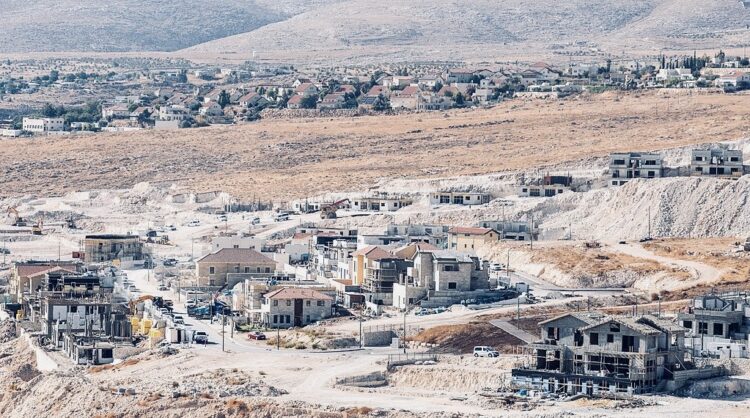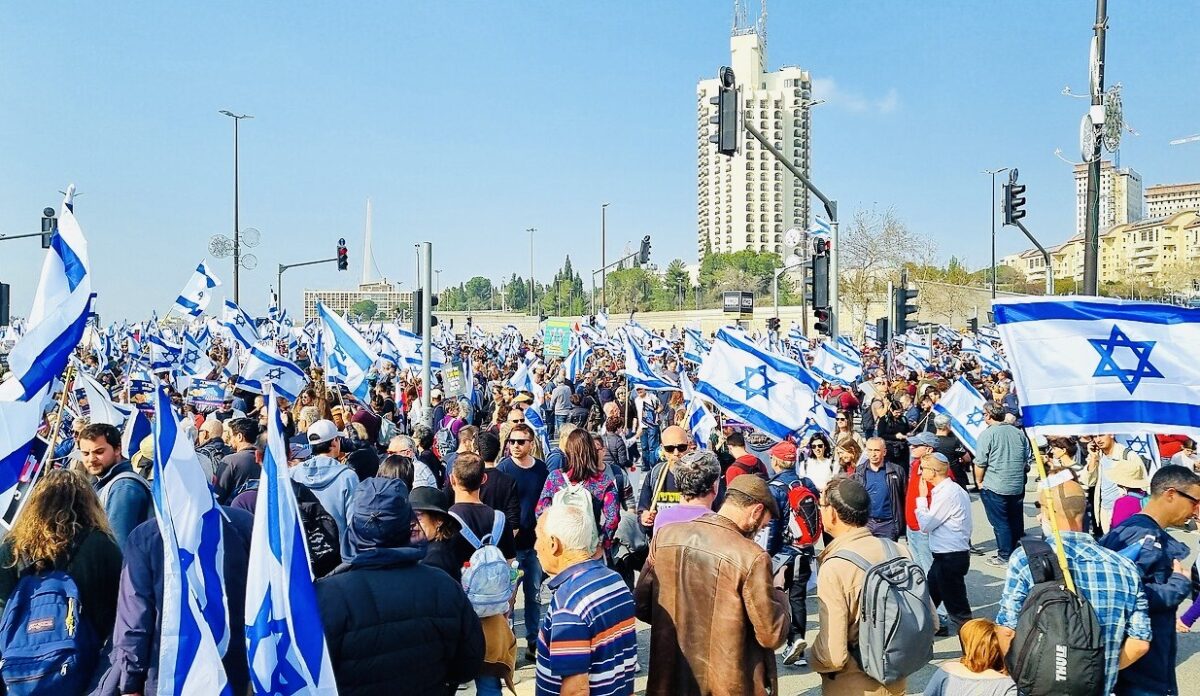Nation-wide protests in Israel condemning the government’s plan to overhaul the judiciary have been going on ceaselessly for the past seven months. The protesters’ zeal and commitment has been unflagging. Two days ago, they demonstrated in front of Ramot, a moshav near the Sea of Galilee where Prime Minister Benjamin Netanyahu and his family were vacationing.
The demonstrators fear that, if fully implemented, Netanyahu’s scheme will greatly weaken the Supreme Court and correspondingly strengthen the executive branch, giving the government unfettered and unprecedented powers that could well undermine Israel’s democratic system.
It is a worthy cause that has united the Israeli center and left into a powerful bloc that Netanyahu and his associates can ignore or dismiss only at their peril. Much to Netanyahu’s possible detriment, it could have electoral ramifications in the next general election.

Be that as it may, the mass demonstrations beg the question why the protesters have not seized upon another issue that is directly related to Israel’s future as a democracy.
Israel’s occupation of the West Bank, as well as its refusal to embrace a two-state solution, should be of immense and immediate concern to Israelis who sincerely care about the democratic complexion of the country.
Now in its 56th year, the occupation has turned Israel into a colonial-style occupier bent on suppressing the legitimate national aspirations of the Palestinians, who are morally and politically entitled to statehood within the framework of a negotiated agreement that assures Israel’s right to security.
The occupation, a throwback to an unsavory era of conquest, blackens Israel’s image, coarsens its society, and brings it menacingly closer to degenerating into an apartheid state.
This is a view not held exclusively by people on the left.
Amiram Levin, a former general in the Israeli army, warned recently that Israel’s control of the West Bank summons up similarities with the discriminatory policies of Nazi Germany. He expressed fear that soldiers will not be motivated to defend Israel if the government pushes through its judicial agenda.

Levin’s analogy is overdrawn, I believe, but his pedigree as a patriot is unassailable. He was in charge of the Israeli army’s Northern Command. He commanded the Sayeret Matkal special force, of which Netanyahu was a member during his national service. He served as deputy director of the Mossad, the external intelligence agency.
If a man of his stature and experience is driven to voice such opinions, something must be terribly amiss.
So why are Israeli protesters willfully ignoring the Palestinian problem, the elephant in the room? Why are they focusing entirely on the judicial overhaul?
Obviously, some of them are unmoved by the plight of the Palestinians, or think that Palestinian statehood is a problematic solution that would ultimately endanger Israel.
These are legitimate concerns, yet they should consider the proposition that Israel’s continued occupation of the West Bank, with its array of Jewish settlements and outposts, can only bring Israel harm.

The occupation has created an unjust, undemocratic two-tier system of justice in Israel and the West Bank. It seriously threatens Israel’s character as a democratic Jewish state, and it propels Israel forward toward a binational state reality, the polar opposite of the Zionist dream.
The occupation is guaranteed to exacerbate Israel’s already protracted conflict with the Palestinians. And it is bound to trigger fresh outbursts of terrorism and Israeli retaliatory raids, leaving yet more bloodied corpses in its wake.
Currently, it is eroding Israel’s standing in the United States, particularly among young liberal Americans and the Democratic Party.
And now the occupation stands in the way of an Israeli rapprochement with Saudi Arabia and much of the Arab world.
In the face of these developments, Netanyahu’s far-right coalition is expanding existing settlements and legalizing unauthorized outposts such as Homesh and Evyatar. Meanwhile, Finance Minister Bezalel Smotrich, a settler, a super hawk and the leader of the Religious Zionist Party, has been given responsibility for civilian issues in the West Bank.

Netanyahu has completely distanced himself from a two-state solution, to which he paid mere lip service from 2009 to 2015 and which is fading fast as a viable alternative, and now he speaks of granting the Palestinians no more than “limited sovereignty” or “autonomy-plus,” which they would likely reject.
Israelis opposed to Netanyahu’s retrogressive policies are well aware what is happening in the West Bank as they take to the streets and roads throughout Israel in massive demonstrations, yet they choose to focus on the judicial overhaul at the expense of the occupation.
To be sure, their preoccupation with this pivotal internal issue is perfectly understandable and necessary. But if they persist on this path without also addressing the festering and potentially dangerous Palestinian problem, they will most likely live to regret it.

